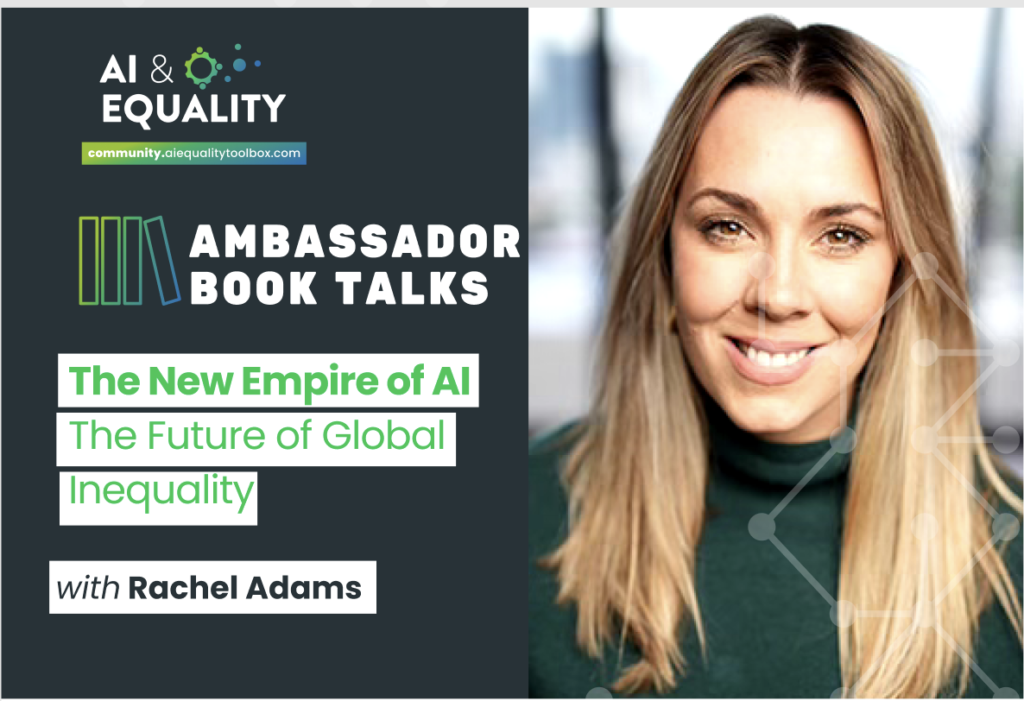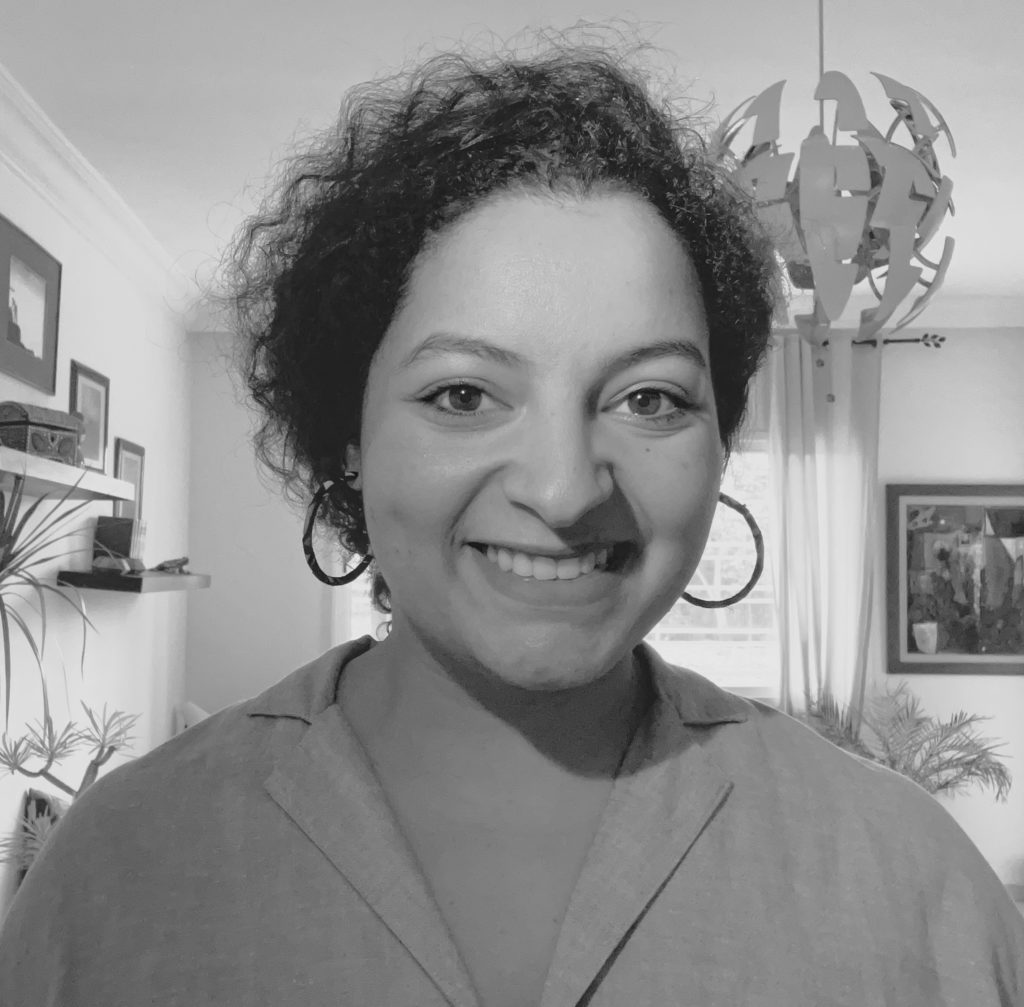The first AI & Equality 2025 Ambassador Book Talk opened with a powerful voice in the field of AI ethics and governance: Dr. Rachel Adams. As founder and CEO of the Global Center on AI Governance, her new book The New Empire of AI: The Future of Global Inequality is a bold interrogation of how AI, far from being the great equalizer, is entrenching systems of oppression and inequality on a global scale.
The New Empire of AI is compelling. It brings together personal stories, global policy insight, and a grounded, decolonial perspective. At the heart of Dr. Adams’ analysis is a deceptively simple idea: AI is not one thing. It is an ecosystem of decisions, infrastructures, labor, and power relations. And within that ecosystem, the global South often becomes the invisible backbone—offering labor, data, and resources without enjoying the benefits of technological advancement. She illustrates this through multiple stories: gig workers in Europe who remain homeless despite holding jobs, or children in the global South forced to sit at screens for hours monitoring abusive content so their parents can keep their tenuous grip on digital work.
These stories are more than anecdotes—they illustrate the deep inequalities of the AI supply chain. Dr. Adams details how labor in the AI ecosystem is increasingly extractive: instead of offering upward mobility, these platform-based jobs—often without protections or pathways—trap workers in cycles of poverty. Unlike earlier forms of globalization, which at least brought physical infrastructure, AI’s virtuality often leaves nothing behind. No buildings, no jobs—just code hosted elsewhere.
In The New Empire of AI, we also sense an insistence on hope. Dr. Adams speaks of feminist leadership, not as a buzzword, but as a real alternative to the scale-obsessed, extractive models that dominate tech today. Her call to “replicability over scalability” urges us to think locally, contextually, and with deep community co-design. In doing so, she challenges both toxic masculinity and the systemic patriarchy embedded in the technologies we use.
Her decolonial framework asks us to do three things: identify ongoing injustices, dismantle them, and then imagine and create something radically different. That creative act—of imagining just, localized, inclusive futures—is where the book ultimately lands. From South African justice movements to feminist AI networks, Dr. Adams points us to the work already being done and asks: what if we centered these efforts, rather than seeing them as peripheral?
About Rachel Adams
Rachel Adams is the Founder and CEO of the Global Center on AI Governance. She sits on the UNESCO Expert Committee for the implementation of the UNESCO Recommendation on the Ethics of Artificial Intelligence, the AI Safety and Ethics Committee of the Bill and Melinda Gates Foundation, and the Multistakeholder Expert Group of the Global Partnership on AI.
She is also an Associate Fellow at the Leverhulme Centre for the Future of Intelligence at the University of Cambridge and at the Faculty of Medicine at the University of Cape Town.


